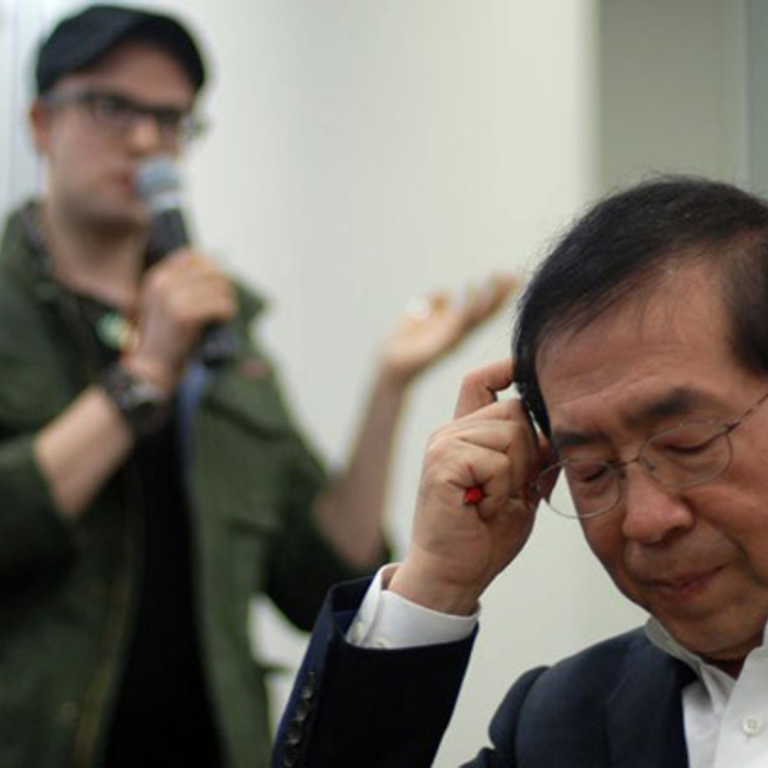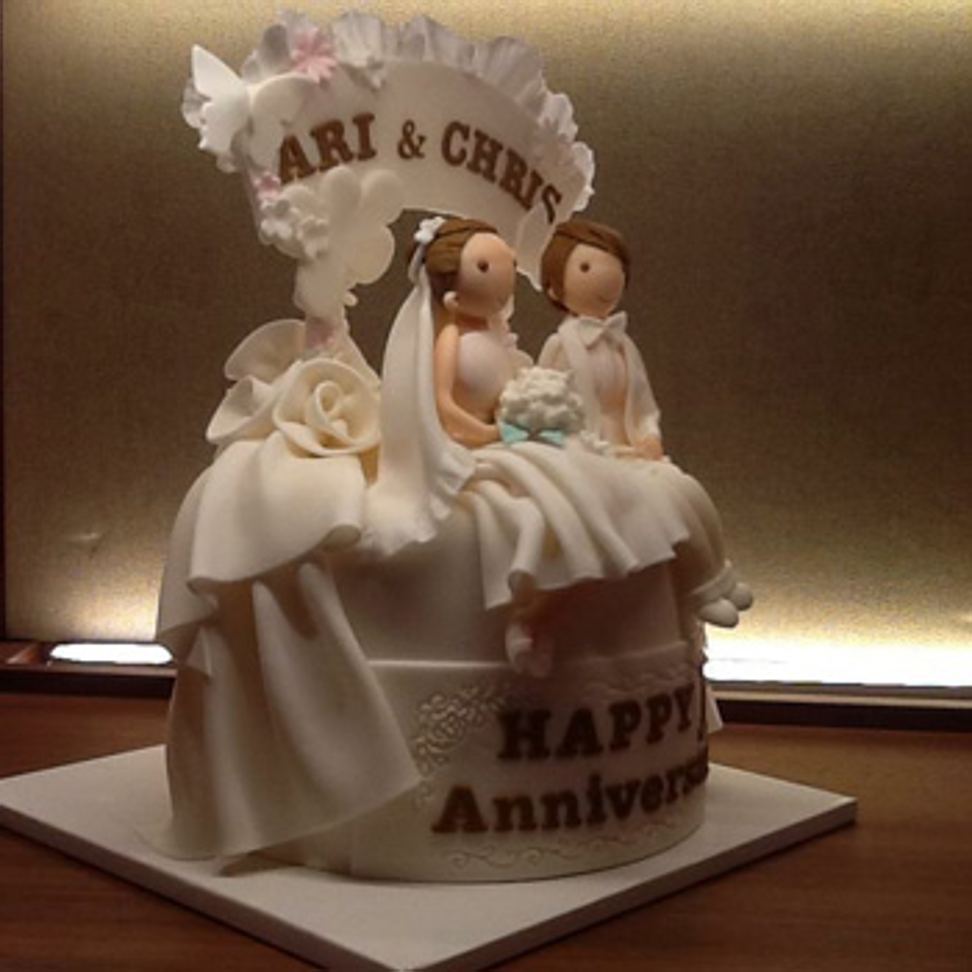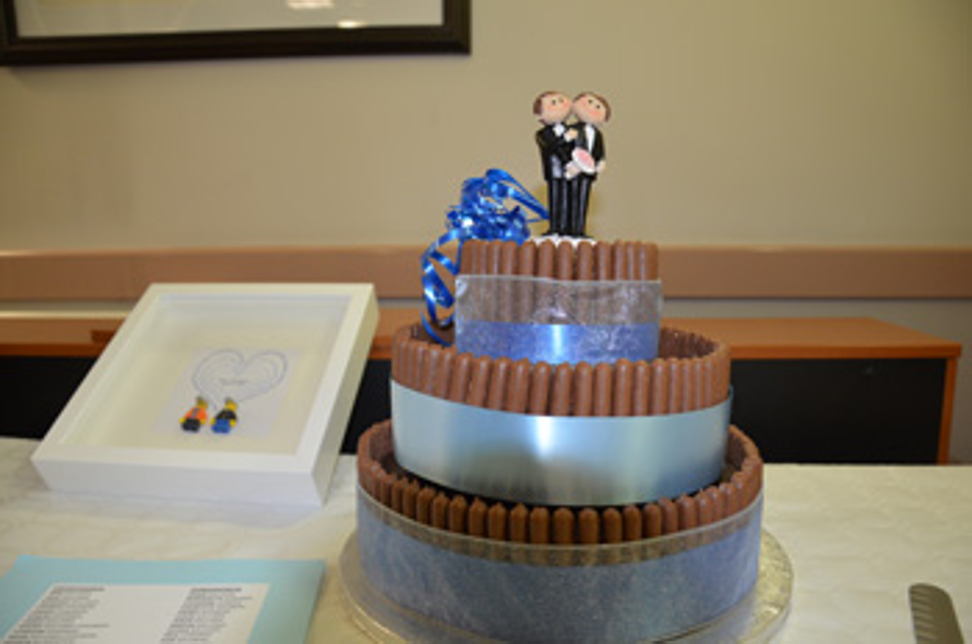
Same-sex couples in South Korea flee to wed
Expats call for legalisation of same-sex marriage
By You Soo-sun
Same-sex marriage in Korea is unlikely to be legalised in the foreseeable future. For some, fleeing is no longer a choice, but a necessity to have their marriage recognised. The Korea Times interviewed same-sex couples to understand what marriage means for them and what it is like to live in a place where it is banned.
Chris and Ari, a Korean female couple in their 40s, wed in Canada four years ago. Their parents and relatives are still unaware of this.
“My father tells me marriage (between man and wife) is a duty one owes to his or her parents. The pain I suffer from hiding our marriage is my way of fulfilling that duty,” Chris said.
And they often feel misunderstood, even by their close friends. “They do not consider our relationship as being serious. They see us as close friends living together,” Chris explained. “There was an instance when a friend asked my wife to receive a bouquet at her wedding… It was shocking.”
And they plan on returning to Canada for good this time to live normally as married partners. “Marriage is a basic right. It’s what pulls lovers together and makes them feel more responsible for each other,” she said. “I just want to live in a place where I’m not legally discriminated against, and where I can protect my lover.”
As Korea is no such place, same-sex couples have no choice but to move abroad if they wish to get married and have their marriage recognised.
In 2015, Simon Hunter-Williams, 33, got married to his Korean partner in his hometown of Birmingham, England. The two men wed under the British law, as Seoul ― the place they met ― bans matrimony between people of the same sex. But soon they returned to Seoul, a place they wish to call home.
“I just want normal things like raising a family, where our children won’t be bullied for having two male parents, where we will have basic marriage rights,” Hunter-Williams said. When he consulted lawyers about the issue, they simply suggested: “leave Korea.” But even before returning to Seoul, their relationship often became a subject of laughter and mockery. At the Korean Embassy in London, where Hunter-Williams tried to apply for a spouse visa, he was told “there was no such thing as a Korean man who would marry (him).” He tried to register his marriage in Korea, but officials would either “laugh in (his) face” or were “just plain rude.”
Hunter-Williams has been very vocal about this issue. In 2015, he confronted Seoul Mayor Park Won-soon at a town meeting with over 100 attendees. He asked for legal recognition of his marriage, a way to help him stay in Korea with the man he loves.
Recently he submitted a petition to President Moon Jae-in, the Minister of Justice, and to the Commissioner of Immigration seeking legalisation of same-sex marriage. And although he is aware this attempt may be futile, as officials and lawyers tell him, he is determined to carry on. He asked many to participate in his online petition.
Expats speak out
Many, who reached out to The Korea Times, were expats with Korean partners. And for those who came from a country where same-sex marriage is legal, it was a right that was taken away.
“My feeling to live in a country that doesn´t allow me to marry someone I love is a feeling of powerlessness,” said a 46 year-old man from Latin America, who referred to himself as Pablo. He is a Ph.D. student at a university outside of Seoul. “To see my foreigner straight friends getting married to Koreans and to attend the wedding makes me cry because I don´t have the same opportunity: getting married and having the opportunity to stay in Korea for a long time.”
And although he enjoys living here and wishes to stay, it gets suffocating. And as a foreigner, he feels far more isolated. “It seems contradictory to live in a country that I like, a country that has given me opportunities to improve my professional skills but at the same time, doesn’t allow me to marry the man I love,” he said.
Others also shared their thoughts. “It has been legal in my country of South Africa since 2006, and it would allow thousands of people here to be able to live a life equal to their straight peers,” Megan Bursey, 27, said. She has a Korean girlfriend whose parents are unaware of her sexual identity. “It is time for Korea to join the rest of the developed world in recognising gay marriage and granting LGBT people equality under the law.”



